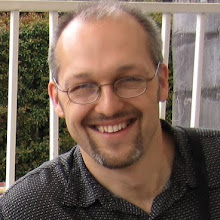In his column in the November 2004 Scientific American, the sharp and amusing Michael Shermer, public atheist and publisher of the Skeptic (www.skeptic.com), picked apart a variety of studies on the effectiveness of prayer.
He raises a number of excellent points. Most of these studies are flawed scientifically. While it's exciting to be able to say "Scientists have shown prayer works," unfortunately it actually makes Christianity seem less credible when the researchers aren't extremely painstaking.
On the other hand, you can poke holes in almost any scientific research, even very good studies, since science is really an art.
But I am intrigued and amused by Shermer's concluding paragraph: "The ultimate fallacy is theological: if God is omniscient and omnipotent, he should not need to be reminded or inveigled into healing someone. Scientific prayer makes God a celestial lab rat, leading to bad science and worse religion."
Yes! In a sense it does. We too easily succumb to vending-machine theology, thinking that if we can just figure it out, we can get the responses we want from God. But God is not mocked. He's a person, and the least manipulatable person in the universe. Reading the biographies of Jesus convinced me of that.
Yet Shermer's theological fallacy is deeply flawed. Certainly he's right, that God doesn't need either to be reminded or inveigled into healing. So why pray? Shermer's worldview renders all prayer unnecessary, assuming God is good enough to want to do good, and intelligent enough to figure out how. Again, Jesus' biographies convince me that God is both.
So, why pray? I believe Pascal said, "When God ordained prayer, he conferred onto his creatures the status of being causes." (I'll correct that when I can look it up.) Chuck Miller said something like, "Prayer is not a what; it is a who. It's not an activity, it is a relationship with a person."
Here's another, from Richard C. Halverson:
"Christianity was birthed in Galilee as a relationship.
It spread to Greece and became a Philosophy.
It spread to Rome and became an Empire.
It spread to Britain and became a Culture.
It spread to the United States and became an Enterprise."
Why did God decide that prayer would be required to do many things in this world? First, so we will relate to God. If everything were done automatically for us, nothing would push us to God. Or else if some things were not done, even by prayer, none of us would turn to God even in desperation.
Second, because God is a creator, a worker, an artisan. We are the handicraft of God, and part of our beauty as human beings is our ability to create, to work, to make art.
So God allows us to participate in the work of caring for this world, which is a combination of gardens and cities. Both require planning, care and attention, or else they quickly cascade down to decay. With effort and imagination, they can be beautiful and productive.
So we work with our minds and our hands to participate in creation. We also work in partnership with the eternal artist, the eternal architect and builder, the eternal gardener. This requires prayer.
More on scientific prayer next time.
Saturday, July 9
Subscribe to:
Post Comments (Atom)

No comments:
Post a Comment